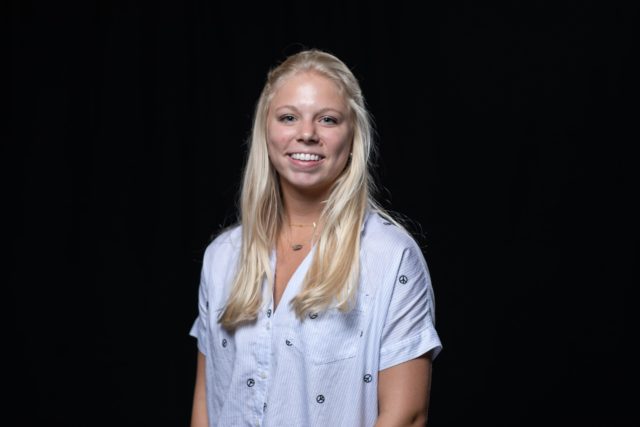By Madison Day | Assistant News Editor
A significant amount of waste produced in our country is organic material that could be composted. Composting is a natural way of decomposing and recycling waste back into the earth. With the recent approval for another landfill near Axtell, if Baylor implemented composting on its campus, waste could significantly be reduced both on campus and in the McLennan County community.
Dr. Melinda Coogan, Baylor environmental science professor, says an integration of composting into Baylor’s sustainability efforts could truly have a large impact.
“So, on the large scale, that is where we get into issues. That’s where going local can really help. On a campus the size of Baylor, if we show we have this amount of food waste, and we can contribute that amount to a compost pile, then that would be taking that amount out of the circulation of going to the landfill. If more small businesses or entities would implement that, it could make a sizeable impact on the larger landfill sites,” Coogan said.
Landfills are taking away from the natural processes that would typically occur in those sites and is thus disrupting the natural flow of resources. Additionally, landfills are a significant contributor to the release of greenhouse gases, such as methane, into the atmosphere. According to Coogan, this methane gas is further contributing to global climate change.
As citizens of the world, we should always be looking for ways to become more environmentally conscious and sustainable. If Baylor began to compost, we could greatly reduce the waste heading to the landfills in Waco. Additionally, by composting, Baylor could potentially kickstart a trend within the Waco community. Every action makes a difference, and the more people that have that mentality, the more progress we will make in protecting our earth in the present and for the future.
Several other college campuses such as Cornell University, Ohio University and University of Washington have implemented composting successfully. Clearly, it is not about if Baylor can compost, it is about whether or not it will make the effort to do so.
The amount of plastic and organic waste produced in the last 50 to 60 years is significantly larger than any other time in history. Dr. Roland Geyer, a professor from the University of California in Santa Barbara, published a paper in the last year stating that of all the plastic ever produced, 79 percent of it is in either a landfill or in the natural environment. In fact, according to Coogan, there is a plastic pile in between California and Hawaii that is the size of Texas. It is so important to realize that every action you take makes a difference.
“We often think that if I don’t recycle this one thing, if I don’t pick up that piece of trash then it’s not really a big deal. Well, it is a big deal. Because not only are you one of many thinking that way, but you’re also an example to the people around you. You’re always contributing to this global society,” Coogan said.
Composting is a great way for the Baylor community to contribute to a better environment tomorrow; however, getting this process implemented could take time. In the meantime, students can be environmentally conscious in other ways by making sure you’re recycling materials, using reusable water bottles and grocery bags and conserving water.
Madison sophomore journalism major from Austin.



